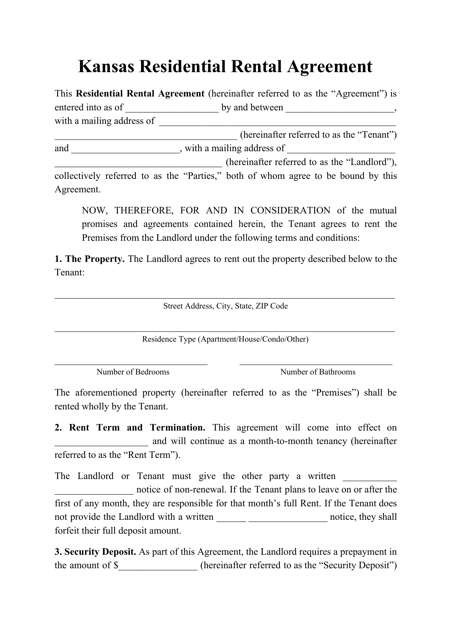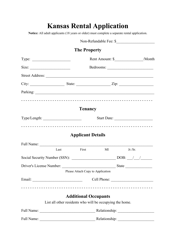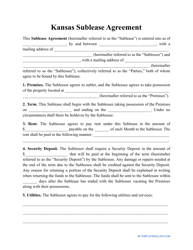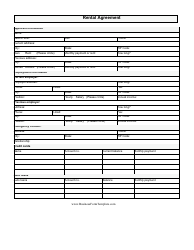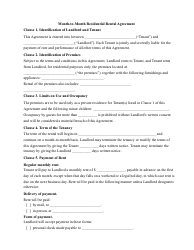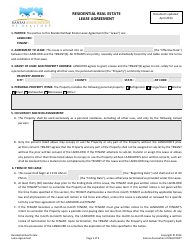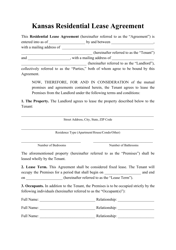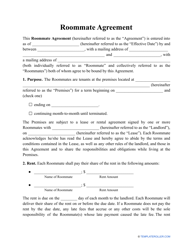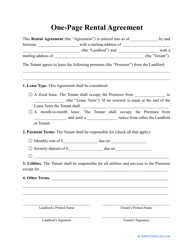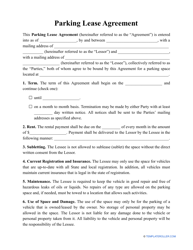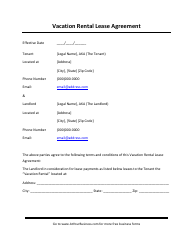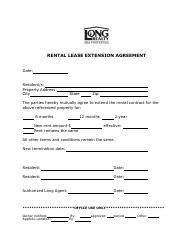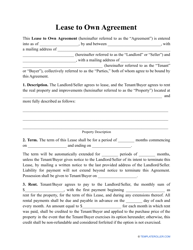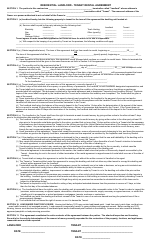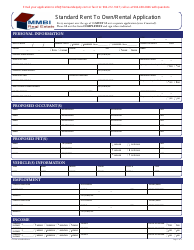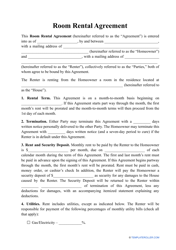Residential Rental Agreement Template - Kansas
The Residential Rental Agreement Template - Kansas is used as a legal document to establish the terms and conditions between a landlord and a tenant for renting a residential property in the state of Kansas. It outlines the rights and responsibilities of both parties, including details such as rent payment, duration of the lease, maintenance responsibilities, and other important terms.
In Kansas, the residential rental agreement template is typically filed by the landlord or property owner, not by any specific government entity. It is generally used as a contractual agreement between the landlord and the tenant. However, it's important to note that filing the agreement itself with any government agency is not a standard practice.
FAQ
Q: What is a residential rental agreement?
A: A residential rental agreement is a legally binding contract between a landlord and a tenant, outlining the terms and conditions of renting a residential property.
Q: What is the purpose of a residential rental agreement?
A: The purpose of a residential rental agreement is to protect the rights and interests of both the landlord and the tenant, and to clearly define their responsibilities and obligations.
Q: What should a residential rental agreement include?
A: A residential rental agreement should include details such as the names of the landlord and tenant, the property address, the term of the lease, the rent amount and payment terms, security deposit information, maintenance and repair responsibilities, and any additional terms and conditions.
Q: Can a landlord require a security deposit in Kansas?
A: Yes, a landlord can require a security deposit in Kansas.
Q: Is there a limit on how much a landlord can charge for a security deposit in Kansas?
A: In Kansas, there is no statutory limit on how much a landlord can charge for a security deposit.
Q: What are the rights and responsibilities of a landlord in Kansas?
A: The rights and responsibilities of a landlord in Kansas include providing a habitable premises, abiding by fair housing laws, maintaining the property, respecting the tenant's privacy, and following the proper eviction procedures.
Q: What are the rights and responsibilities of a tenant in Kansas?
A: The rights and responsibilities of a tenant in Kansas include paying rent on time, keeping the property clean and undamaged, reporting any maintenance issues to the landlord, respecting the landlord's property, and abiding by the terms of the lease.
Q: Can a landlord evict a tenant in Kansas?
A: Yes, a landlord can evict a tenant in Kansas, but they must follow the proper legal procedures and obtain a court order.
Q: Are there any specific laws regarding termination of a lease in Kansas?
A: In Kansas, if a lease does not specify the notice period for termination, either party must give at least 30 days' written notice.
Q: Can a landlord raise the rent during the term of a lease in Kansas?
A: In Kansas, a landlord can only increase the rent during the term of a lease if there is a provision in the rental agreement that allows for rent increases.
